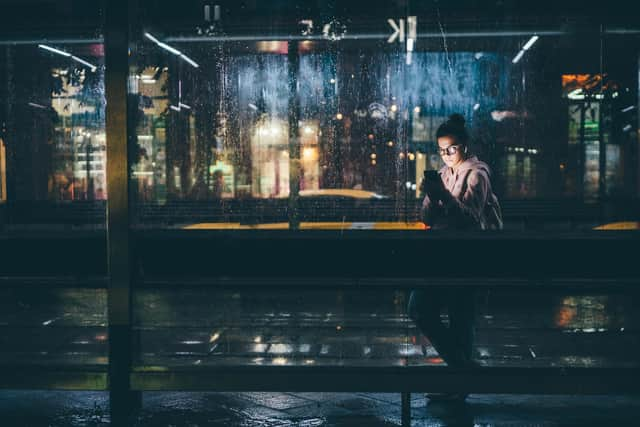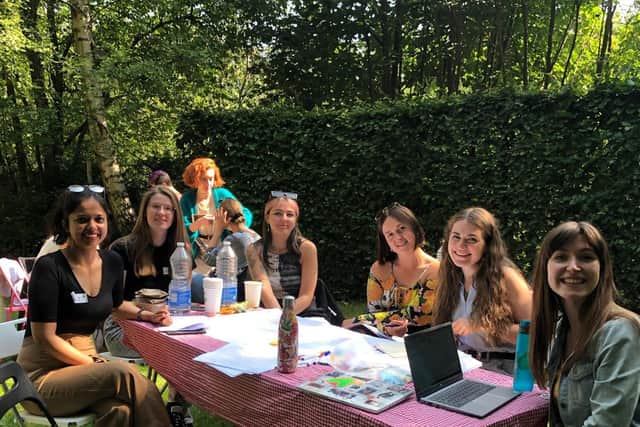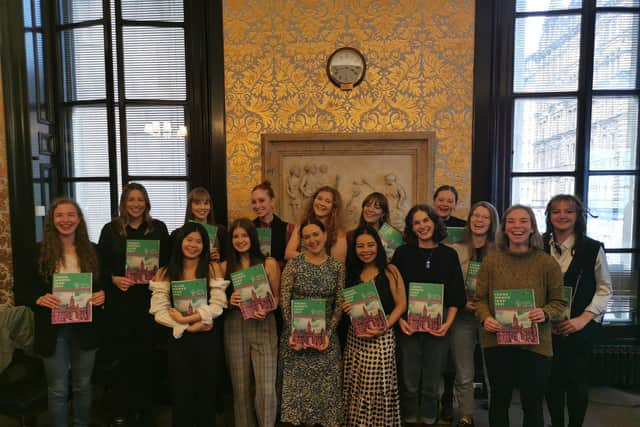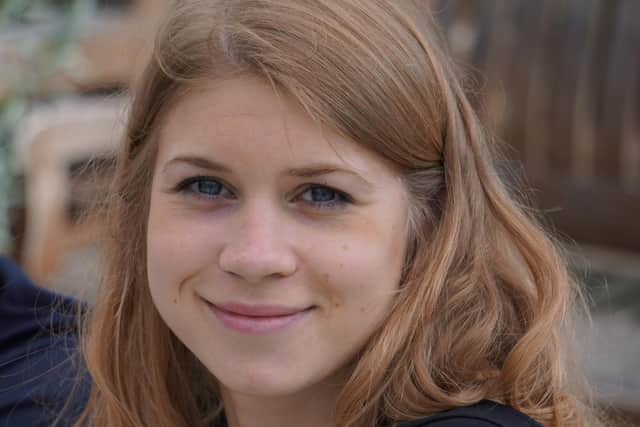Feminist Town Planning: Glasgow group campaigning to put women at the heart of safer, better city parks and buses
Young Women Lead, a group established by YWCA Scotland to increase younger female political participation, has published its report, Glasgow: A Feminist City?.
Its research into Glasgow’s public transport and spaces began around the time the case of 33-year-old marketing executive Sarah Everard – who was kidnapped, raped and murdered in London – rose to national prominence.
Advertisement
Hide AdAdvertisement
Hide AdProposals include introducing a women’s bus service at night, creating a new single ticket for all modes of public transport, cutting down park hedges and increasing lighting at bus stops and in open spaces.
Young Women Lead will send the report to Glasgow City Council and call for an official response.
What is Feminist Town Planning?
Feminist town planning, or feminist urbanism, centres around the idea that towns, cities and urban spaces are generally designed by men, for men, with a lack of consideration for the needs of women, non-binary and genderfluid people.
The ‘neutral’ resident which is traditionally spoken about in town planning is almost always quietly assumed to be male.


Elena Soper, the programme’s coordinator, said: “Feminist town planning is essentially thinking about how the infrastructures of cities weren’t built with women in mind and everything we see around has been built not with a ‘neutral’ person in mind but a cis, white, heterosexual man so we looked at how to consider bus and park planning for everyone.
"We are thinking about lighting, public transport and how public transport links together and our open spaces and how we use them.
"We are also thinking a lot about safety. There’s been a massive discussion recently on are women ever actually safe so we are thinking about what can be done to make our streets safe for women.”
Who is behind the ‘passion project’?


The nine-month Young Women Lead programme was mostly run digitally from January until September this year.
Advertisement
Hide AdAdvertisement
Hide AdThe report was written by a group of 23 women, aged between 16 and 30, from across Glasgow.
Kimberley Somerside, 25, who works in policy in the voluntary health sector and stays in Glasgow’s West End and solicitor Caitlin Alexander, 25, who stays in Glasgow’s Southside, were both part of the group creating the report.
Both were looking at improving buses in Glasgow for women and said the programme was a ‘passion project’ and allowed them to solidify their own personal experiences being young women living in Scotland’s largest city.


Ms Somerside said: “The Sarah Everard case happened right when we were starting our research it was just horrendous and we were all hit by it.
"I think that shaped a lot of the direction we went with. Women already understood the reality of safety in Glasgow but actually undertaking the research allowed us to put data backing behind that.”
Ms Alexander added: “With the responses we got, you can see being a young women intersected with a lot of other identities with how safe people felt on public transport and open spaces.
"There were a lot of anecdotal responses from people who were harassed at parks and buses which was pretty profound to read in the report.”
What did their findings show?
The data was collected from around 600 survey respondents who revealed what they would like to see happen to improve women’s and non-binary people’s experience in Scotland’s largest city.


Advertisement
Hide AdAdvertisement
Hide AdThe findings show around 67 per cent of women and non-binary people often feel unsafe or uncomfortable on buses in Glasgow, with unsolicited approaches from men and antisocial behaviour cited as some of the main factors.
What is more, 66 per cent of respondents felt their social identity impacted their safety.
When asked to expand on their answers, the most common response was that bus users felt “being a woman” impacted their safety onboard and around public transport.
For parks, only one in five of all 214 participants who commented felt very comfortable in their chosen park.
A majority said they only felt safe when visiting during daylight hours.
Participants also pointed out that parks are used as thoroughfares and shortcuts for taking a route from A to B and represent a crucial but possibly overlooked part of the transport network.
However, a lack of lighting and overgrown shrubbery which obscures paths were cited as reasons to be worried about or to avoid parks altogether.
The third most frequently suggested improvement was increased security (54 per cent of respondents), but people did not necessarily mean this to be an increased police presence.
What are Young Women Lead proposing?
Advertisement
Hide AdAdvertisement
Hide AdThe report advocates increasing lighting at bus stops and in parks and tackling overgrown shrubbery which could give attackers a place to hide in public spaces.
One simple ticket for all modes of public transport was mooted to remove any barriers to getting 'from A to B' in the safest, cheapest way possible.
Increasing seating and sheltered areas within parks, frequent night-time buses including a women-only bus and increased security at night in the form of park rangers was also recommended.
The report recommends a city partnership with Vienna, a leading feminist town planning city which has been named with the highest quality of life from 2009 to 2019.
Ms Soper said: “What we really want is for it to be taken very seriously because this is a piece of research that has been done by the women of Glasgow for the women of Glasgow.
"The council has a responsibility to listen to the people who live there. There are ongoing initiatives looking at transport and parks and I think they need to include this.
"The recommendations are not totally wild and out there. This is a constructive criticism for things which can be improved.”
The report is available to read on YWL’s website.
Comments
Want to join the conversation? Please or to comment on this article.